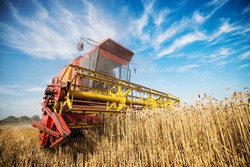Better cooperation between research and industry to advance the agro-food industry
Weak or non-existent links between industry and science and technology institutions in Africa hinder the commercialisation of research and development results. The problem is that local industries, particularly small and medium-sized enterprises are hard-pressed to access research findings in public institutions. The situation also makes full innovation and economic integration difficult in the area of food, agriculture and biotechnologies with regard to EU Member States. The project CINEA(opens in new window) (EU-MED cooperation to foster innovation and exploitation in the agro-food domain) worked across four main areas of activity (objectives) to address these shortcomings. The first was concerned with enabling research-to-industry (R2I) networking, collaboration and the transfer of knowledge on relevant methods and technologies. To this end, CINEA organised three R2I Brokerage Events with representatives of the EU-MED agro-food industry and key players. Work in this area also included expert mobility through the mobility scheme and R2I collaboration as part of four R2I twinning projects. CINEA's second work area focused on identifying strengths, weaknesses, opportunities and threats (SWOT). A SWOT task force was set up to identify existing opportunities for and hindrances to cooperation and knowledge transfer between public research and industry. The analysis took into account relevant stakeholders in the area of technologies and methods for sustainable agriculture. The third objective was to build required competences and capacities for improved innovation. Work in this area included and built on the planning and set-up of the R2I twinning projects, four thematic Training & HR Development Workshops, and implementation of a corresponding mobility scheme. Finally, CINEA worked to provide relevant support services for sustainable and continued R2I exchange through its Central R2I Helpdesk. The Helpdesk is for all stakeholders in the knowledge chain, and provides content on business analysis and planning, setting up a business, and intellectual property rights and patenting. CINEA activities provide support for the uptake of research results across the EU-Mediterranean region. The project's varied solutions thus help to bridge the gap between research and innovation in the area of food and agriculture research. The outcomes bode well for both the research and industrial communities, support policy adjustments, and raise public awareness regarding innovation possibilities in the agro-food industry.



